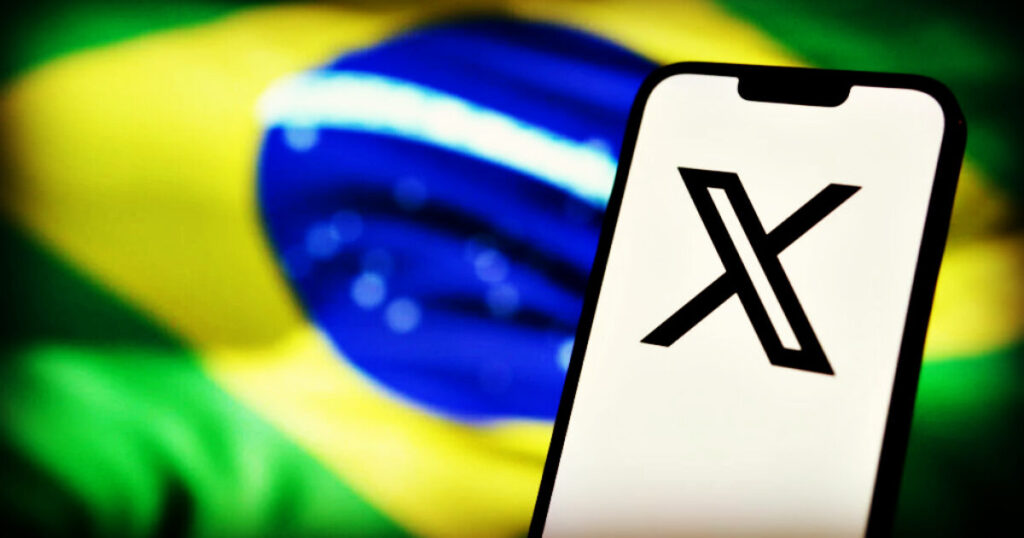The social media platform X has resumed operations in Brazil after a prolonged suspension lasting 40 days, a period marked by discussions around free speech and compliance with local laws. The platform’s return is particularly significant as it serves Brazil, the sixth largest market for X, which boasts 21.5 million users. The suspension stemmed from a ruling by Brazil’s Supreme Court, led by Justice Alexandre de Moraes, who imposed restrictions on X for not adhering to court orders related to hate speech moderation and failure to appoint a legal representative in the country. Despite criticism aimed at Elon Musk for seemingly ‘giving in,’ many users in Brazil view the platform’s reinstatement as a triumph of their digital freedom.
The Supreme Court cleared X to resume operations, indicating that the platform had fulfilled the necessary legal requirements. This marked a decisive moment in the long-standing confrontation between Justice Moraes and Musk. Notably, Moraes had accused X of failing to manage hate speech appropriately, leading to a deadlock that forced the platform to reconsider its previous defiance of Brazilian laws. Justice Moraes emphasized that compliance was the pathway to reinstatement, showcasing the balance that X needed to strike between its operational policies regarding free speech and the legal framework of the host nation.
In recent weeks, Musk appeared to pivot from his stance against the court, as X began to block accounts flagged by Brazilian authorities and appointed a local representative to manage legal obligations. This change in strategy suggests that Musk recognized the economic importance of Brazil to X’s operations, especially in light of alternative platforms like Bluesky and Threads gaining popularity among disenchanted users during the suspension. The move to comply with Brazilian regulations while framing it as a fight for free speech indicates a nuanced approach that aims to retain users without provoking further legal issues.
The conditions for lifting the suspension were outlined by Justice Moraes, who directed Brazil’s telecommunications regulator, Anatel, to facilitate X’s return swiftly. This indication of governmental flexibility emphasized a willingness to negotiate with the platform as long as it adhered to local laws. X celebrated its return through its Global Affairs account, asserting its commitment to defending freedom of speech within the legal frameworks it operates under, suggesting a new era of functioning within the complex dynamics of global social media governance.
The suspension’s origins can be traced back to X’s decision to close its legal offices in Brazil mid-August, primarily due to fears surrounding compliance mandates that were perceived as censorship. This withdrawal left the platform without a legal representative, exacerbating its standoff with the Supreme Court. The ruling body was clear in its position that any failure to comply would result in continued restrictions, highlighting the challenges social media companies face when navigating international jurisdictions while trying to maintain their operational philosophies.
As X rejoins the digital space in Brazil, it faces a critical juncture that extends beyond mere compliance. The platform’s future in the region will depend on its long-term strategy in addressing both user expectations for unfettered access to free speech and the legal obligations imposed by the Brazilian government. With users having temporarily shifted to rival platforms and the global digital landscape continuously evolving, X must balance its identity as a platform promoting open dialogue against the need to operate within a regulatory framework defined by local laws and societal expectations. The next steps will be crucial in determining whether X can regain its user base and reaffirm its commitment to advocating for freedom of expression while respecting national governance.

